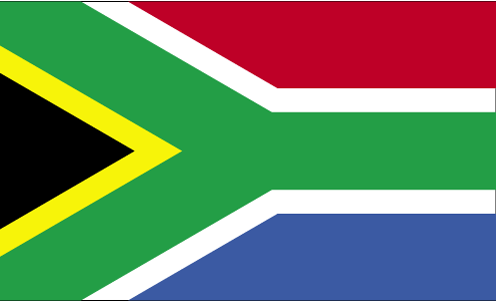Resolution #181
 |
The questions of ethical lithium and cobalt mining |
| Committee: Ecology And Environment | |
| Main Submitter: South Africa | |
| Submitted: 01/04/2022 20:13 |
| Status |
|---|
| Passed cosubmitter sheet validation |
| Approved by approval panel |
| Selected for debate by secretariat |
| Failed by committee (Ecology And Environment) |
Committee Voting
| For: | 12 |
| Against: | 18 |
| Abstentions: | 5 |
Options
Co-submitters
Resolution
COMMITTEE: Ecology and Environment Committee (EEC)
QUESTION OF: Ethical Lithium and Cobalt Mining
MAIN-SUBMITTER: Republic of South Africa
CO-SUBMITTERS: Islamic Republic of Iran, Egypt, Botswana, People's Republic of China, Republic of South Africa, Czech Republic, Ghana, Lebanon
Heeding that the primary global use of cobalt is in creating rechargeable battery electrodes, and substantial alloys of high-performance,
Further heeding that the Democratic Republic of Congo is the world's largest producer of cobalt, contributing to over 70% of cobalt used worldwide in 2021,
Bearing in mind of human right violations within mines of the Democratic Republic of Congo involving children and workers, including the lawsuit in 2019 where large technology companies, including Apple and Microsoft, against cobalt-mining companies where the death of Congolese child miners within their mining site, including but not limited to Zhejiang Huayou Cobalt and Glencore,
Noting that the world's largest lithium reserve locates in Chile, an estimated 8 million tons, next being Australia with 2.7 million tons, then Argentina, and China,
Further noting that lithium is predominantly used in electric vehicle production, where the lithium-ion battery proves essential for durability and reusability,
Recognising that there is a large amount of particles emitted during colbalt mining these consist of radioactive emissions, cancer-causing particles and particles that may cause vision problems, vomiting and nausea, and heart problems. These can create massive environmental problems not only for everyone and everything around the mining but for the world,
Further recognises that the republic of Congo is using mobile phone apps to report accidents, deaths and forced labour. So the authorities can take action. Thus we will promote this app in other countries in Mining areas with the help of the UN. So we can reduce or even eliminate inhumane Cobalt and Lithium mining,
1. Suggests that the Cobalt And Lithium mines safety committee (CLMSC) work in tandem with the IMF (International Monetary Fund) to:
a. Provide a more rigid compensation scheme for fulfilling unpaid leave due to injuries,
b. Fund the construction of foundations for safer mines, including but not limited to ventilation and adequate mining equipments like headgear, gloves, masks, and drills,
c. Grant subsidies to mining companies for supervision and regulation of their mines on whether workers are exploited or not,
d. Provide funding for any upcoming nickel organisations or mining projects, as nickel proves to be more environment and cost friendly comparing to cobalt, thus acting as a substitute;
2. Encourages the creation of a mass media campaign to educate the global population through the means of social media, billboards, in person and online seminars and biodegradable leaflets with the aims of:
a. Educating people about the importance of ecological and environmental rights and laws and how they may be affected,
b. What to do if they believe ecological and environmental rights have been breached,
c. Informing workers about their rights, how they must be sufficed and where to call if they are not being met;
3. Further encourages support and raise in salary for expert in fields of mining in creating and bringing skilled workers to countries experiencing brain drain, where insufficient and inapt working forces are especially susceptible to casualties and exploitation;
4. Urges all member nations to ratify and implement the ILO (International Labor Organisation) safety and health in mines convention 1995 (no. 176), seeing that it is not mandatory;
5. Further Urges that every countries mining laws correlate and agree to the highest standard in according to human rights and they are implemented in a efficient and ethical way through the CLMSC overseeing and reviewing new mining laws once they've been put in place to determine the standard has been reached such as how to manage waste of the mines in an ethical way as the people living in proximity the mines are worst affected;
6. Asks for battery recycling companies to be made more accessible through introducing more battery recycling boxes in public areas such as commercial stores.